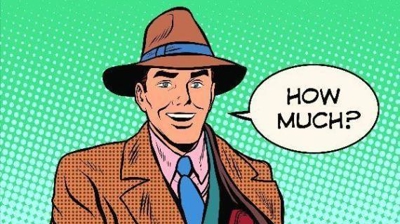One of the distinguishing characteristics of top sales performers is their ability to maintain focus and composure—before and after high-stakes moments. Two common mental traps often sabotage this ability: reachback and afterburn. These self-imposed psychological barriers can drain emotional energy, decrease productivity, and lead to burnout.
What Is Reachback in Sales?
Reachback occurs when an upcoming event—like a tough sales call—begins to negatively influence your present mindset and behavior. It’s anticipatory stress in action, and it can derail your effectiveness well before the event even takes place.
A Sales Story: Wally and the Cold Call Dread
Take Wally Weakcloser. On Friday evening, he made a firm decision: come Monday morning, he would finally commit to prospecting through cold calls. That night, he spent hours planning and rehearsing. So far, so good.
But by Saturday, Wally was mentally living in Monday morning. Instead of being present with his family, he replayed imagined cold call disasters in his head. On Sunday, he skipped his usual golf game to double-check his prep. By Sunday evening, his anxiety had spiraled into a storm of worst-case scenarios.
Although his cold calling plan involved just two hours of effort, Wally allowed the anticipation to consume his entire weekend. That’s reachback—when the future hijacks your present.
Planning vs. Reachback
Let’s be clear: planning isn’t the problem. Wally’s preparation on Friday was smart. But once the plan is made, it’s essential to set it down and live in the present. The goal is to prepare without triggering stress or disrupting your regular life.
To counter reachback, ask yourself:
“Is this anxiety actually helping me execute better?”
If the answer is no, let it go and trust your preparation.
What Is Afterburn in Sales?
Afterburn is the emotional residue that lingers after an event—especially one perceived as difficult or unsuccessful. It's the negative self-talk that haunts you after the fact.
Wally's Aftermath
Let’s return to Wally. After his cold call session, a short debrief would have been appropriate. Fifteen minutes to review results, note takeaways, and move forward would’ve been productive.
Instead, Wally spent hours obsessing:
“I shouldn’t have made those calls.”
“What did they think of me?”
“Why did I even bother?”
The experience replayed in his mind like a loop, dragging down his confidence and emotional energy.
How to Defeat Afterburn
The best remedy? Prepare for frustration, process it, then forget it.
Give yourself permission to reflect briefly, then physically and mentally shift to another activity. Movement can help reset your mindset.
Wally’s actual work—planning, calls, assessment—took less than four hours. But the emotional toll from reachback and afterburn lasted all weekend. No wonder cold calling feels like such a chore!
Reachback and Afterburn Affect More Than Salespeople
While sales professionals often feel these effects acutely, these mental habits aren’t limited to sales. Anyone can fall into the trap of pre-living or post-living a stressful situation.
Psychologist Dr. Eric Berne, who coined the terms reachback and afterburn, offered this wisdom in What Do You Say After You Say Hello?:
“Living day by day means living a well-planned and organized life, and sleeping well between each day, so that the day ends without reachback, since tomorrow is well planned, and begins without afterburn, since yesterday was well-organized.”
Final Thought: Live Fully in the Present
If you want to sell—and live—with greater focus, confidence, and emotional balance, start by recognizing when reachback and afterburn are creeping in. Plan effectively, assess intentionally, but live presently.
You’ll not only boost your performance—you’ll enjoy your life more, too.
Bonus Sandler Resource: 8 Habits of Salespeople Who Thrive During Times of Economic Uncertainty
A down cycle is a great time to improve yourself and your sales process. Download now to learn the habits of salespeople.






